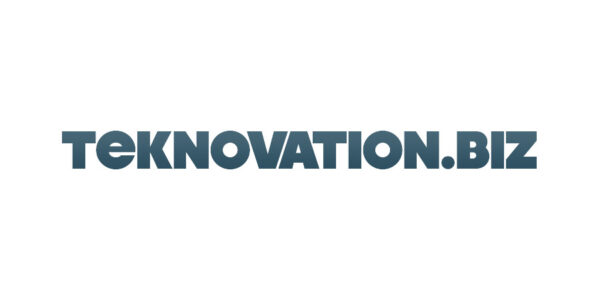Knoxvillians joined by out-of-towners for final panels of “Women’s Capital Series”
By Tom Ballard, Chief Alliance Officer, PYA

 (EDITOR’S NOTE: The three sessions of the “Women’s Capital Series” wrapped up yesterday. In the second of two articles, we capture the discussion during the panels yesterday. Separately, Catherine Porth, who organized the series, shares her views in the first article on what she expected, what she believes was accomplished, and what lies ahead.)
(EDITOR’S NOTE: The three sessions of the “Women’s Capital Series” wrapped up yesterday. In the second of two articles, we capture the discussion during the panels yesterday. Separately, Catherine Porth, who organized the series, shares her views in the first article on what she expected, what she believes was accomplished, and what lies ahead.)
Three out-of-towners joined two Knoxvillians yesterday on panels that brought down the curtain for the inaugural “Women’s Capital Series.”
Organized by Catherine Porth and the Let Her Speak group, the three sessions – two panels on each day in June, July and August – offered insights for women entrepreneurs interested in either securing investment capital (the morning program) or becoming investors (the noontime session). Yesterday’s discussion featured:
- Lauren Kane of Atlanta, Founder of VC Worthy Business whose motto is “Getting investors to open their checkbooks for market disrupting female founders”;
- Carol Seamons, Director of Engagement for the Spark Innovation Centerat the University of Tennessee Research Park, and a former corporate and investment banker who was most recently in private banking;
- Lindsey Cox, President and Chief Executive Office of Launch Tennessee (LaunchTN);
- Monique Villa, Chief Investment Officer of LaunchTN; and
- Eric Dobson, Chief Executive Officer of the Sheltowee Angel Network.
 Kane (pictured on left with Seamons and Porth) served for six years as Director of Operations/Fund Administrator for Golden Seeds, one of the nation’s largest angel groups, before launching her own practice. She spoke at both sessions, Seamons was on the morning program along with Cox and Villa who concluded the session, and Dobson spoke at noon.
Kane (pictured on left with Seamons and Porth) served for six years as Director of Operations/Fund Administrator for Golden Seeds, one of the nation’s largest angel groups, before launching her own practice. She spoke at both sessions, Seamons was on the morning program along with Cox and Villa who concluded the session, and Dobson spoke at noon.
During her time at Golden Seeds, Kane worked with more than 100 female founders, so she brought a good deal of experience to the discussion about helping women founders. Early on, she emphasized the importance of having the same understanding of an entrepreneur’s ideal investor that the start-up founder has of her ideal customer.
“I start with understanding who your ideal investor is,” Kane said of a key recommendation she makes to clients. “Your pitch is not going to work for everyone, and that’s okay.”
Both Seamons and Kane also emphasized the importance of what they termed modelling, whether for a bank loan or as a pitch to an equity investor. Based on her professional background, Seamons noted how important it was for those seeking funding to be able to answer two fundamental questions: (1) detailing the purposes for the money needed; and (2) being able to answer the “runway” (timeframe) to get to cashflow positive.
“You have to get in the weeds . . . you have to plan out everything starting with the numbers,” Kane said in reinforcing Seamons’ points. Shortly thereafter, Seamons emphasized another area that can trip-up start-ups seeking funding. “A lot of times companies don’t think through their costs,” she said.
Later, the conversation again returned to modelling, this time in reference to determining how much equity to give-up for an early investment. The emphasis was on having the endgame in mind – how much you hope to have at the exit – and working back.
 During the noontime panel, the primary topic was deal diligence, but Kane and Dobson (pictured at left) covered a number of items.
During the noontime panel, the primary topic was deal diligence, but Kane and Dobson (pictured at left) covered a number of items.
Describing the investor process as “very much like dating,” Kane said an investor should “draw on your background if you are looking for a place to start” and don’t be afraid to “trust your gut” if things don’t seem quite right with an investment opportunity.
“We put the deal first before we engage with the entrepreneur,” Dobson said. In that process, he added, “You have to figure out how to set your emotions aside and evaluate the opportunity.” The Sheltowee diligence process involves three factors: (1) structure of the start-up; (2) ability to execute against the business plan; and (3) size of the market opportunity.
In terms of evaluating an angel group to join, the two panelists identified considerations like: (1) the formality of the group; (2) number of members, (3) number of portfolio companies; (4) frequency of meetings; (5) formal process to join; (6) number of successful exits and IRR (internal rate of return); and (7) availability of educational programming for members.
During the concluding portion of the morning panel, Villa shared her journey that included working for three venture firms and the proposed “BuildTN Fund,” a $70 million equity opportunity that LaunchTN and her team will manage. The monies are a significant portion of the $117 million in funding the Volunteer State is expected to receive as part of the federal State Small Business Credit Initiative (SSBCI 2.0). Cox talked about the organization that she leads, its programs, and the upcoming “3686 Festival.”



